EXPO 2025
Special Page
Event / Presentation
On Tuesday, June 4th, a total of 36 students and faculty members from the One Earth Guardians Development Program (OEGs), operated by the University of Tokyo’s Graduate School of Agricultural and Life Sciences (*1), and the National University of Singapore (NUS), one of Asia’s leading universities, participated in a tour of the CHITOSE office and the microalgae lab located at the Kanagawa Science Park.
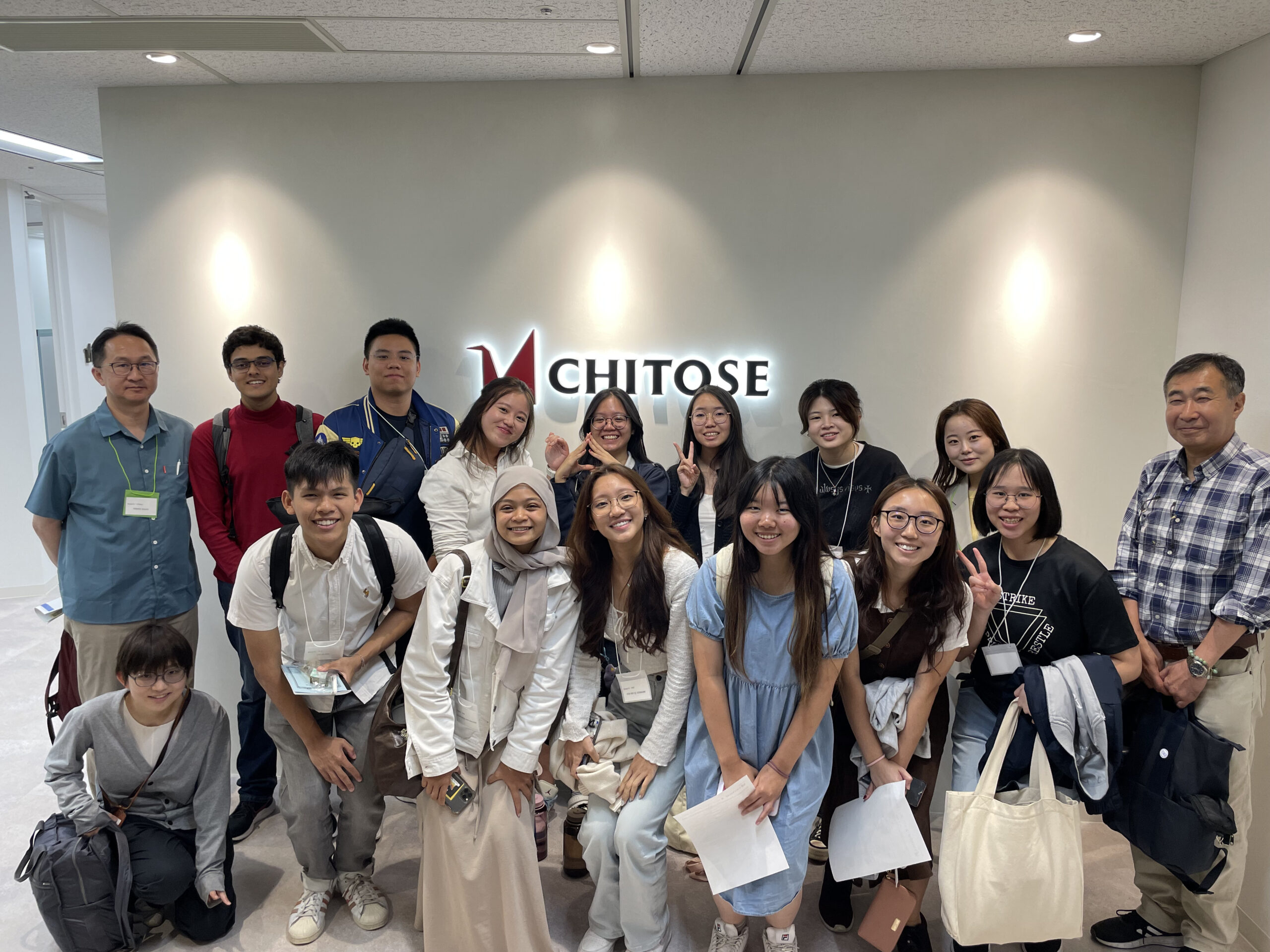
Group Photo
The University of Tokyo and NUS actively conduct academic collaboration through student exchange programs and mutual faculty visits. This time, an exchange project was held between OEGs and NUS on the theme of “Planetary Health.” Students and faculty members from both universities visited and held discussions at various research and development sites. Having been requested as one of the locations for a visit, CHITOSE prepared a tour to introduce its microalgae business.
At the beginning of the tour, Executive Officer and Chief BioEngineer Takahito Hoshino explained what microalgae are and the microalgae-related business CHITOSE is engaged in. It was particularly impressive to see the students listening intently and taking notes as he discussed the potential of microalgae.
Next, the participants were split into four groups. Each group received an introduction of CHITOSE Carbon Capture Central (C4), the world’s largest microalgae production facility (*2), covering an area of 5 hectares. They also toured the microalgae lab, participated in a tasting session, and engaged in a discussion with CHITOSE members.
The introduction to C4 was conducted online by connecting to the C4 site in Kuching, Malaysia via Zoom, where Chief BioEngineer Hoshino presented the production facilities and daily operations. During the Q&A session, students asked questions like, “Can oil extracted from microalgae compete cost-effectively with mainstream petroleum fuels?” This discussion allowed participants to envision a future where microalgae play a significant role in our society.
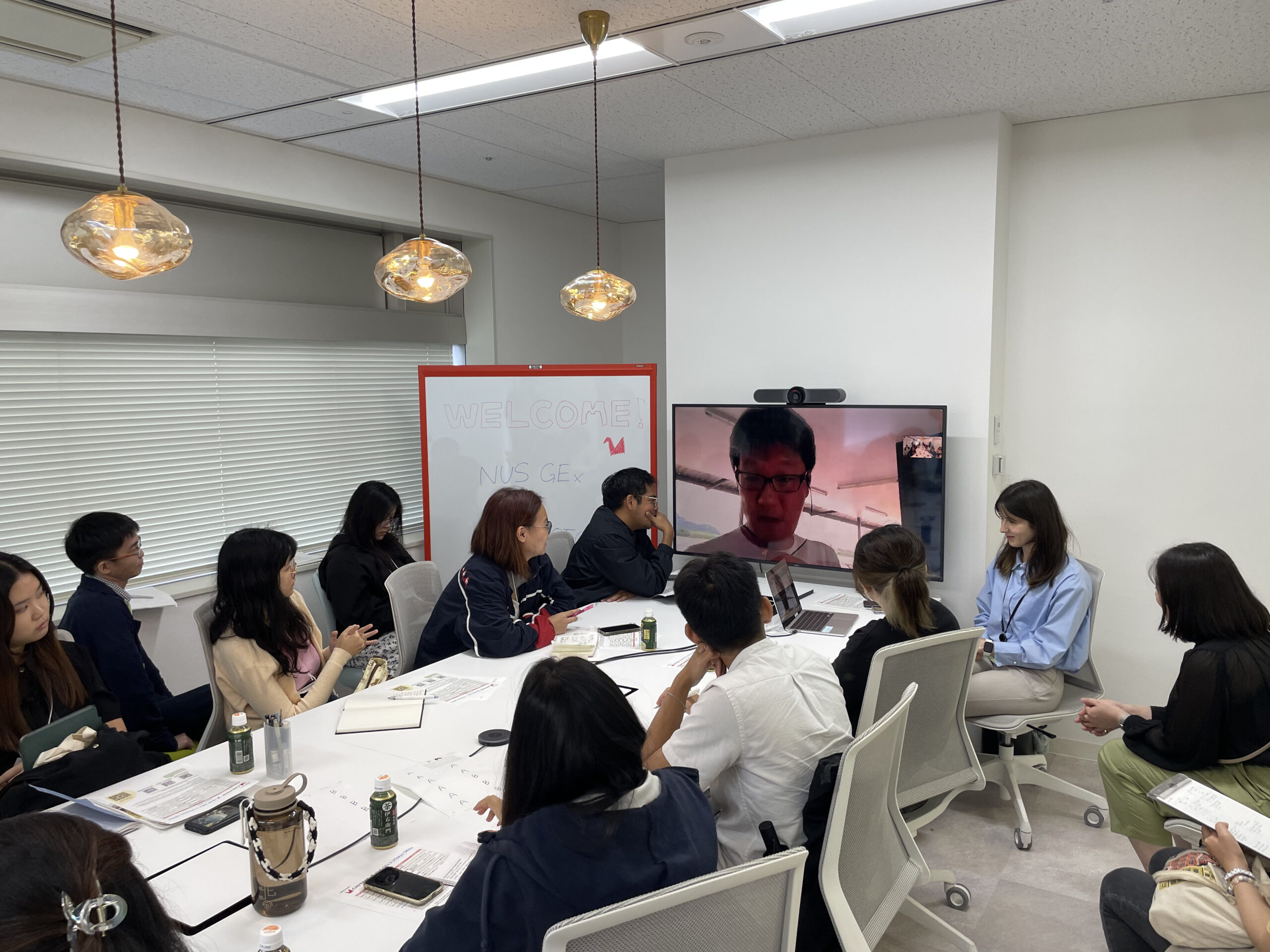
C4 Online introduction
During the tour of the microalgae lab, Senior BioEngineer Takumi Matsuzaki introduced the production equipment and explained the cultivation process. In the production area, visitors observed facilities equipped with the latest digital technology. Students and faculty were particularly intrigued by the opportunity to smell and touch dried microalgae samples, as well as examine materials derived from microalgae.
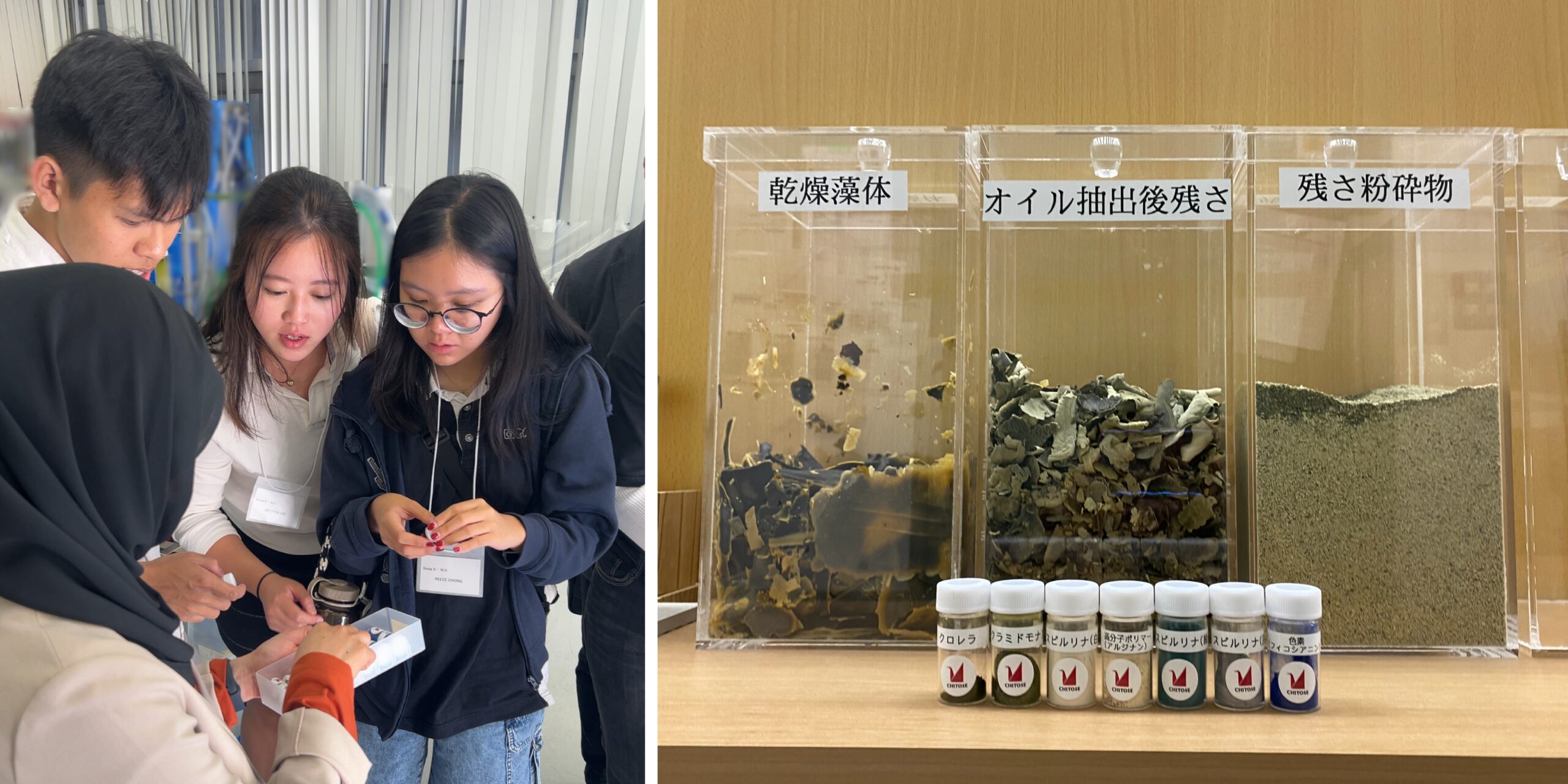
Left: Visitors touching microalgae / Right: Materials derived from microalgae
At the tasting event, participants enjoyed foods containing spirulina, such as financiers and cookies, while Sales Manager Yoshihide Shinagawa and Manager Miyuki Yanagimachi provided explanations about the use of microalgae in food products. The students offered a variety of feedback, including ideas about which food products could benefit from microalgae’s unique properties. They also commented, “It tastes like matcha and is easy to eat,” and “Actually tasting it gave me a better understanding of the potential of microalgae.”
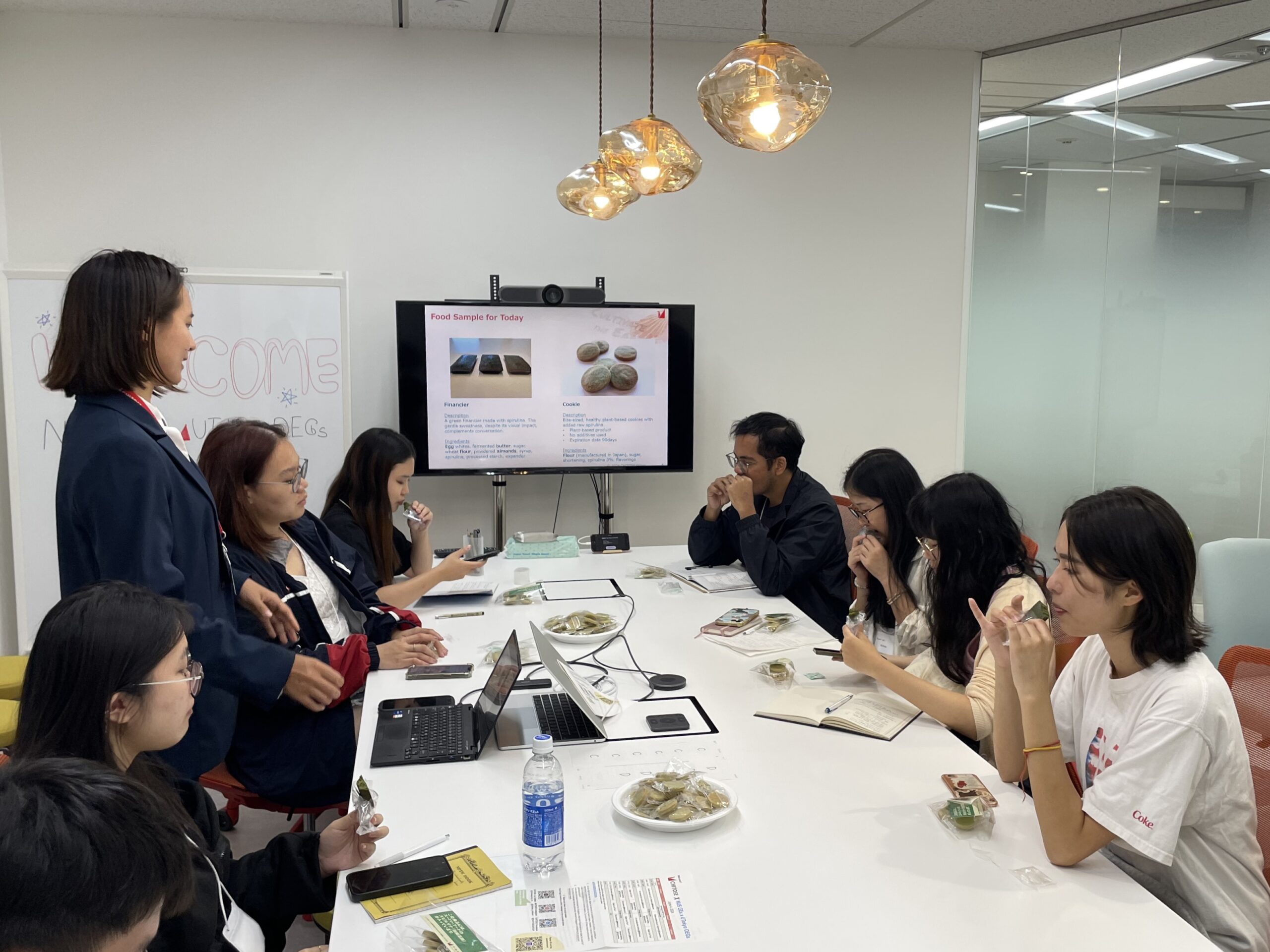
Tasting session
After the tasting, we held a discussion with Senior Manager/Head of all businesses in Sarawak, Ryo Iko, and Manager Aiko Hayashi. During the discussion, a wide range of opinions were exchanged on topics such as “strategies to reshape the current image of microalgae” and “ways to integrate microalgae in Singapore.” The lively exchange of ideas showed the strong interest in the potential of microalgae among all participants.
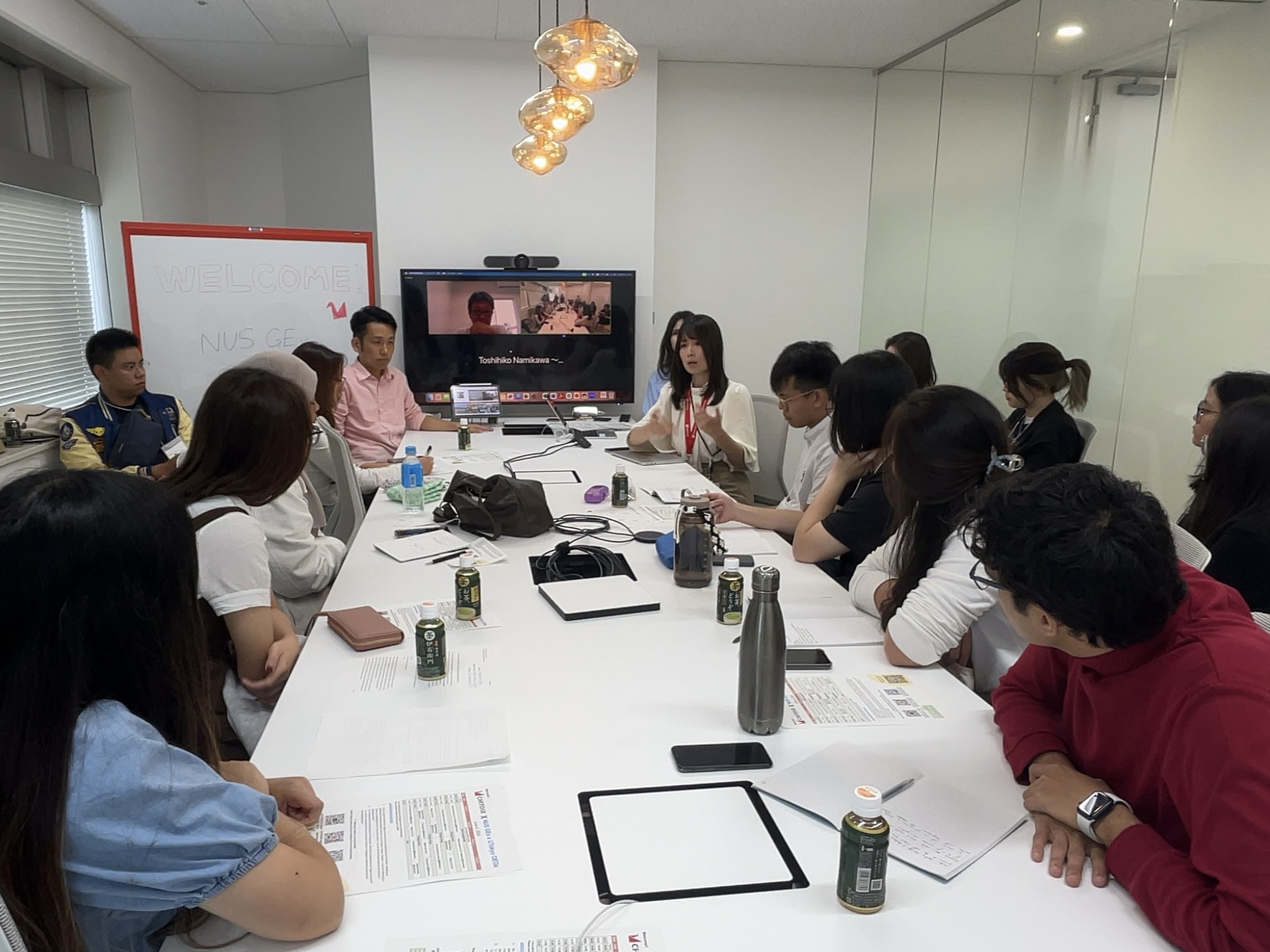
Discussion session
At the end of the tour, participants commented, “I was amazed to see microalgae being used in this way,” “I am surprised to learn this could be the key to the future,” and “It was so fulfilling; I wish we had more time.” This tour provided a valuable opportunity to showcase the potential of microalgae to students who will become future leaders in various sectors.
About MATSURI
https://matsuri-partners.chitose-bio.com/en
MATSURI, MicroAlgae Towards SUstainable and Resilient Industry, is a project led by CHITOSE Group aimed at establishing an advanced microalgae-based industry in collaboration with partner enterprises and governmental agencies. As what MATSURI means in Japanese, CHITOSE continues to lead the festival to promote and develop a sustainable society.
We look forward to your participation in MATSURI. Click here to contact us.
Related Information
[External] One Earth Guardians – Graduate School of Agricultural and Life Sciences, The University of Tokyo
[External] National University of Singapore: NUS